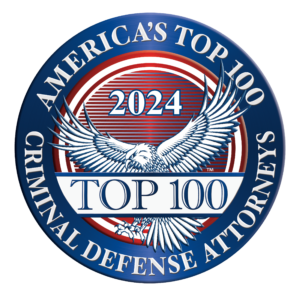WHAT IS A GRAND JURY?
A grand jury is a group of citizens that are called upon by the court to help determine whether or not criminal charges should be brought based on the available evidence. In the federal system, a federal grand jury is made up of 16 to 23 people. These people are convened as a grand jury for a period of one month up to a year, even though they are typically only expected to appear a few days per month. The proceedings before a grand jury are kept strictly private, and the grand jury acts like an investigative body without any real oversight by a judge or prosecuting attorney. A federal prosecuting attorney is often the only attorney in the federal grand jury room, looking to present the evidence they suggest proves the existence of criminal activity on the part of an individual or an organization. When a federal grand jury is investigating illegal activity involving an organization, then it is likely that the federal grand jury is tasked with determining whether there is the existence of any federal white-collar crime. When there is an investigation involving potential white-collar crime, then a federal grand jury proceeding can be the catalyst to numerous federal criminal charges.
WHAT TYPES OF INFORMATION MAY A GRAND JURY SUBPOENA?
A federal grand jury can issue a subpoena to force you to either testify, produce documents or objects, or require you to both testify and produce specific documents. You will either be subpoenaed as an individual or as a custodian of records for a business or other organization. If a federal grand jury has subpoenaed you to testify, then you will be required to appear before a federal grand jury to answer questions about the potential illegal conduct in question. If you are before a federal grand jury to bring and/or testify about documents, then it is important to understand the scope of questions that you are required to answer. Federal prosecutors will routinely ask questions designed to implicate you or other members of your business or organization in various forms of white-collar crime without you even knowing it. The Supreme Court has ruled that as a corporate custodian of records, you are only required to answer questions related to how the documents were gathered. A federal prosecutor may call you multiple times to testify in front of a grand jury, which can also produce inconsistent testimony which can land you in more trouble. Grand juries are enormously powerful, as they can determine when federal criminal charges are issued, and how serious the charges are.
HOW DOES THIS AFFECT ME?
If you have been subpoenaed to testify or bring documents before a federal grand jury, then this can affect you directly. You are allowed to have a lawyer to assist you if you are facing a federal grand jury subpoena. Your attorney can’t be inside the grand jury room with you while you testify, but he or she can be right outside the room waiting to answer any and all of your questions. You have the right to consult with your attorney before answering any and every question posed by the federal prosecutor and the grand jury during a grand jury proceeding. You may be able to avoid answering certain questions by “pleading the fifth” or invoking your rights under the Fifth Amendment of the United States Constitution against self-incrimination. Going into a federal grand jury proceeding without legal counsel or otherwise incorrectly responding to a federal grand jury subpoena can have catastrophic consequences. Cases that involve the required production of documents can often be tied to various forms of federal white-collar crime. If you are facing a federal grand jury subpoena, then it is important that you seek the advice of an experienced federal criminal defense attorney as soon as possible.





